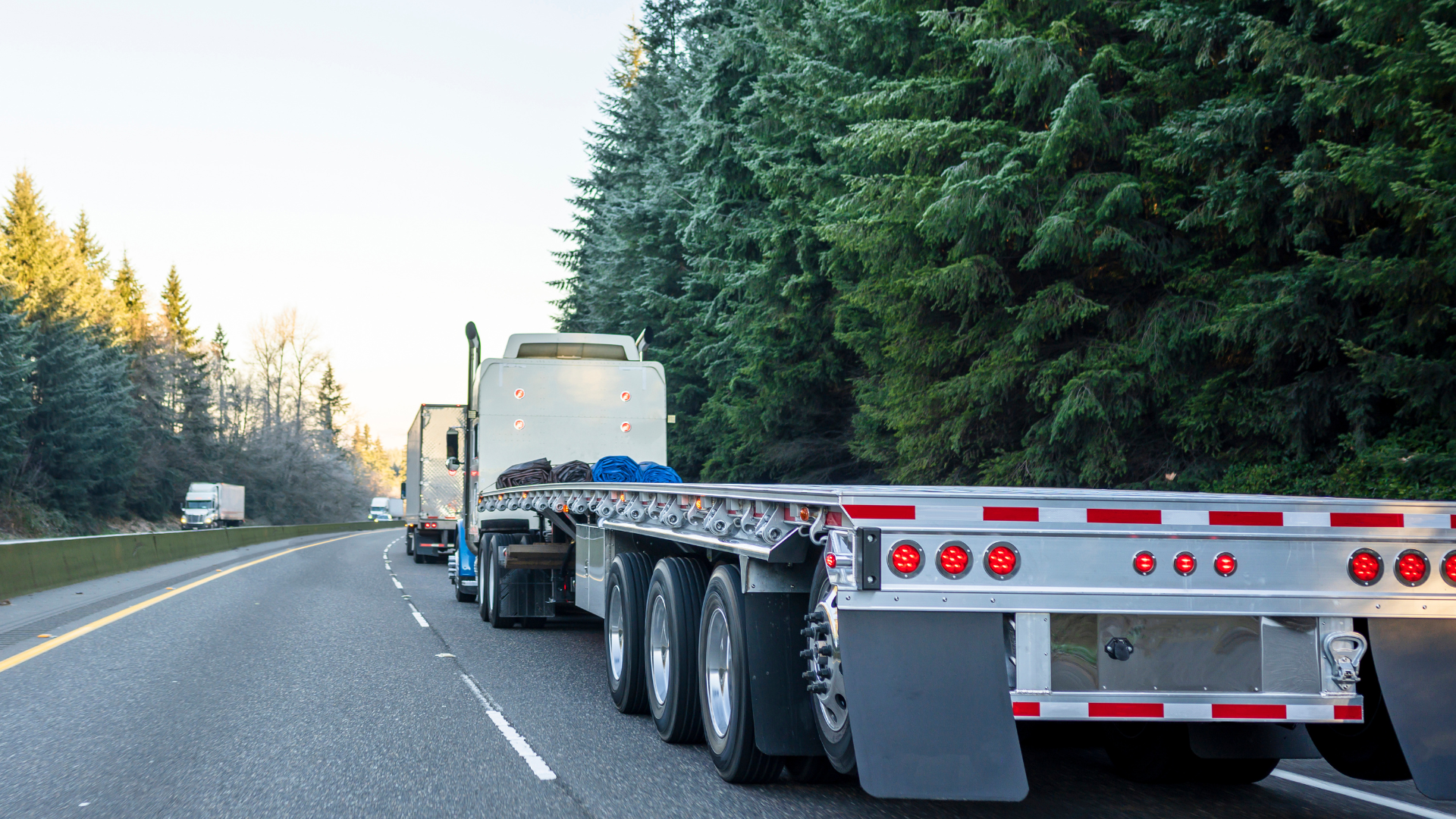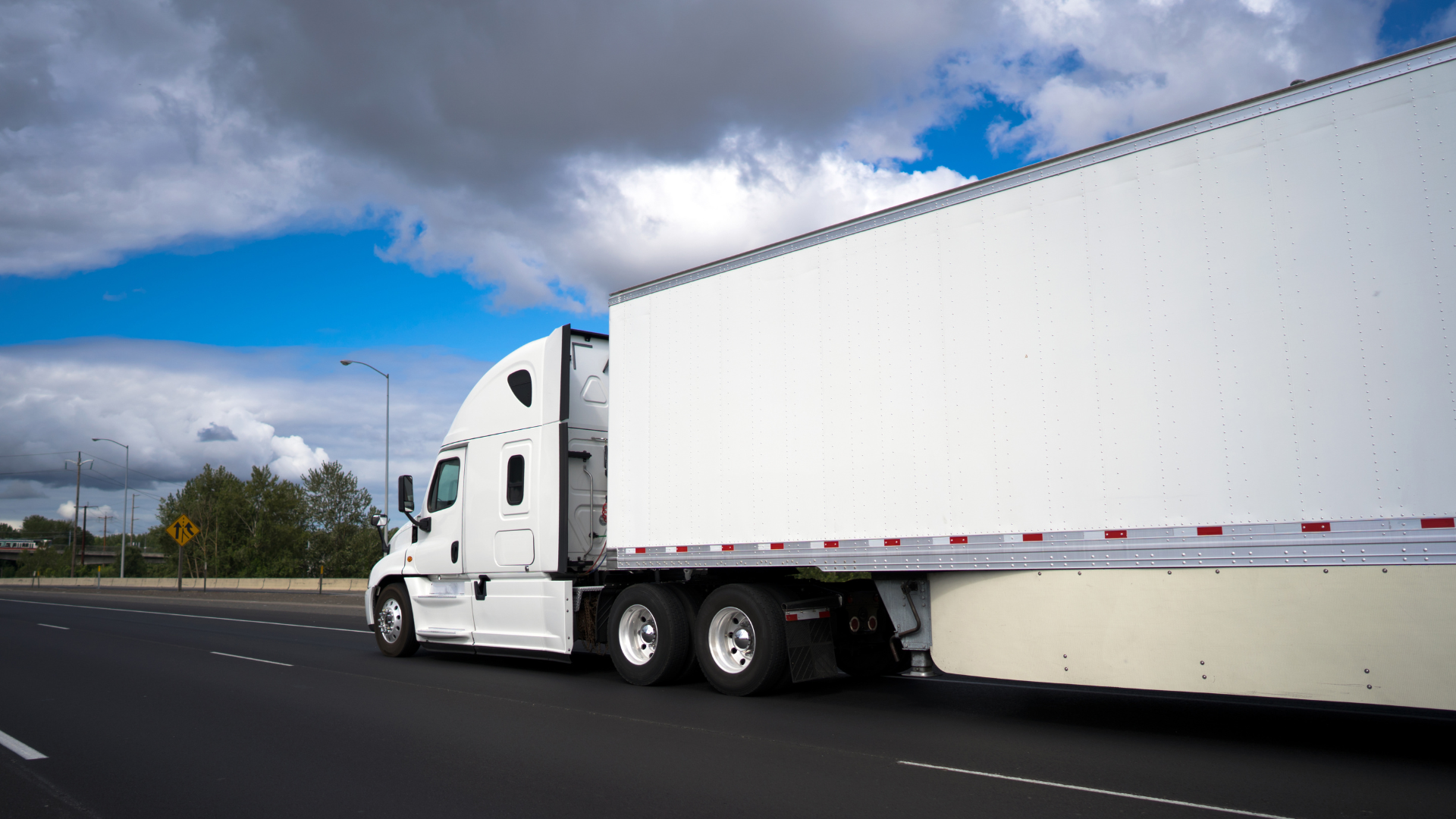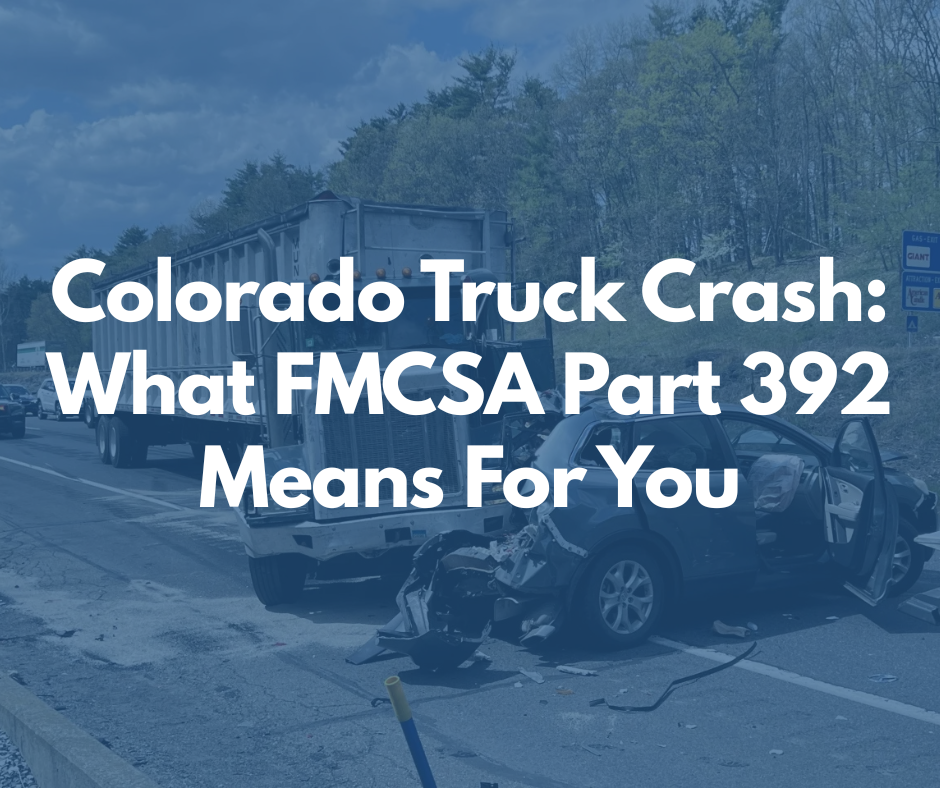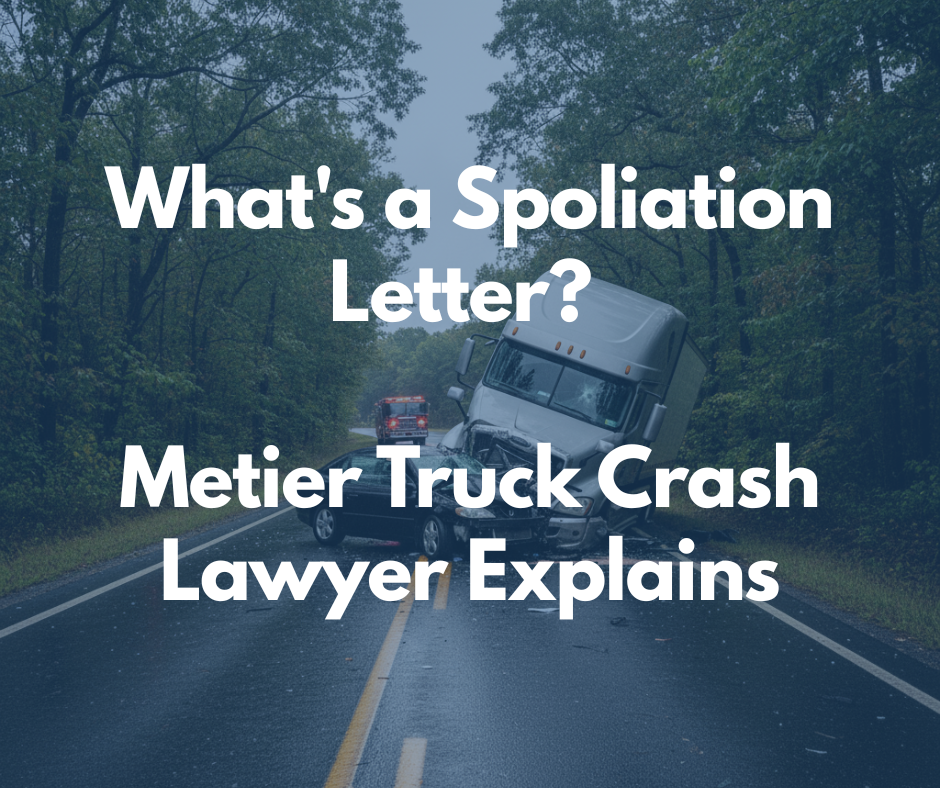
Key Takeaways:
- Deadheading means driving a commercial truck with an empty trailer, and research shows these trucks are 2.5 times more likely to crash than loaded ones.
- Empty trailers are unstable, vulnerable to high winds, harder to brake, and many drivers lack proper training to handle them safely.
- Multiple parties can be liable in a deadhead crash, including the driver, trucking company, cargo broker, and maintenance provider.
- Critical evidence like electronic logging device data and black box records can disappear quickly, so acting fast is essential.
- You need a truck accident lawyer who understands both federal trucking regulations and the unique dangers of deadhead operations.
As a truck accident lawyer, I see them all the time on highways across Colorado, Wyoming, Washington, Oregon, and Nebraska: big rigs hauling empty trailers. They look like they should be safer than fully loaded trucks, right? Actually, the opposite is true. Empty trailers create unique dangers on the road, and when crashes happen, the legal questions can get complicated fast.
If you've been hurt in a collision with an 18-wheeler that wasn't carrying cargo, understanding what "deadhead" means and how it affects your case can make a real difference in getting the compensation you deserve.
What Does "Deadhead" Mean in Trucking?
Deadheading happens when a commercial truck driver hauls an empty trailer after delivering a load. The driver has dropped off cargo at one location and needs to get to the next pickup point, but there's no freight to carry in between. Industry data suggests that roughly 35% of all truck miles driven are deadhead miles.

It's a reality of the trucking business, but it comes with serious safety risks. These trucks still have all the power and momentum of a loaded rig, but without the weight to keep them stable and controlled.
Why Are Deadhead Trips a Safety Concern?
Here's what most people don't realize: commercial trucks are engineered to haul heavy loads. When that weight disappears, the physics of how the truck handles changes completely.
Research shows that empty trailers are 2.5 times more likely to be involved in a crash than loaded ones. That's not a small difference. The National Safety Council reports that over 117,000 large trucks were involved in injury crashes in 2021, and deadheading plays a role in many of these incidents.
So what makes deadhead trucks so dangerous?
Weight distribution problems. Without cargo, the trailer becomes top-heavy and unstable. The center of gravity shifts, making rollovers more likely during turns or sudden maneuvers.
Wind vulnerability. High winds can push an empty trailer around like a sail. Dry van trailers with tall, flat sides are especially at risk. What might barely shake a car can flip an empty trailer in the right conditions.
Braking issues. The truck's braking system is designed for a loaded trailer. With an empty one, stopping distances increase and the brakes can overheat or fail to grip properly during emergency stops.
Driver inexperience. Many truck drivers receive training on hauling loaded trailers, not empty ones. The skills required are different, and less experienced drivers can struggle to control a deadhead rig, especially in bad weather or on mountain passes.
Economic pressure. Some trucking companies don't pay drivers for deadhead miles. When a driver isn't getting paid, there's real incentive to speed and take risks to get to the next paying load faster. According to the Federal Motor Carrier Safety Administration, this kind of pressure contributes to unsafe driving behaviors that put everyone at risk.
These factors combine to create serious hazards, including rear-end collisions, jackknifing, and rollovers.
How Is Deadheading Different from Bobtailing?
People sometimes confuse these two terms, but they're not the same thing.
Deadheading means the truck is pulling an empty trailer. Bobtailing means the truck isn't pulling any trailer at all. Both create safety issues because of the missing weight, but they affect the vehicle differently.
A bobtail truck (just the tractor without a trailer) can be harder to control because most of the truck's weight is on the front axle. A deadhead truck has the trailer attached but empty, which creates the instability and wind problems we talked about earlier.
Both situations require special handling skills. Both can lead to crashes. And both matter when it comes to figuring out liability.
Who Can Be Liable in a Deadhead Truck Accident?

This is where things get complicated. When you're hurt in a crash with a commercial truck, multiple parties might be responsible.
The driver. If the driver was speeding, distracted, fatigued, or failed to adjust their driving for the empty trailer, they may have breached their duty of care.
The trucking company. Companies can be liable if they failed to properly train drivers on handling empty trailers, if they pressured drivers to make unsafe deadhead runs, or if they didn't maintain the vehicle properly.
The cargo broker or shipper. Sometimes the parties scheduling loads create unrealistic timelines that force drivers into unsafe situations.
Maintenance providers. If brake failure, tire blowouts, or other mechanical issues caused the crash, the company responsible for maintaining the truck might share liability.
A truck accident lawyer can investigate all of these angles. We look at logbooks, maintenance records, company policies, driver training documents, and black box data to figure out who's actually responsible.
If you or a loved one was injured in a crash with a commercial truck, call us at 866-377-3800 or schedule a free consultation at www.metierlaw.com.
What to Do If You Were Injured in a Deadhead Crash
The steps you take right after a truck accident can affect your ability to recover compensation later.
Get medical attention immediately, even if you think you're okay. Some injuries don't show symptoms right away. Document everything you can at the scene: take photos, get witness information, and write down what you remember.
Report the crash to law enforcement. Don't give recorded statements to insurance companies before talking to a truck accident lawyer. Insurance adjusters work for the trucking company, not for you.
Why Evidence Collection Is Critical
Truck accident cases require specific types of evidence that can disappear fast if you don't act.
The truck's electronic logging device (ELD) records hours of service and can show if the driver was fatigued or rushed. Black box data reveals speed, braking, and other critical information leading up to the crash. Maintenance logs show whether the company properly inspected brakes, tires, and other systems.
Driver qualification files tell us if the person behind the wheel had proper training and a clean driving record. Company policies reveal whether the trucking company pushed unsafe practices.
This evidence doesn't stick around forever. Trucking companies know that, and sometimes evidence gets lost or destroyed. A commercial truck accident attorney can send a spoliation letter immediately to preserve this information.
How a Truck Accident Lawyer Can Help
Trucking companies and their insurers have teams of lawyers protecting their interests from day one. You need someone on your side who understands the Federal Motor Carrier Safety Regulations, knows how to investigate trucking negligence claims, and won't back down when facing corporate legal teams.
We handle everything from gathering evidence to dealing with insurance companies to filing a semi-truck accident lawyer claim if negotiations don't work. We work on contingency, which means you don't pay anything unless we win your case.
Frequently Asked Questions
What is the biggest risk of deadhead trucking?
Rollovers are the most serious danger. Empty trailers have a higher center of gravity and less stability, especially in high winds or during sharp turns. According to the National Highway Traffic Safety Administration, large truck occupant fatalities increased by 8.5% from 2021 to 2022, with rollovers being a significant contributor.
Can a truck driver refuse to deadhead if conditions are dangerous?
Legally, drivers have the right to refuse unsafe work. If weather conditions are severe or if the driver doesn't feel safe handling an empty trailer, they should speak up. However, company pressure sometimes prevents drivers from making the safe choice. This is where deadhead trucking accident liability gets complicated.
How long do I have to file a truck accident claim?
It depends on which state the crash happened in. Colorado, Wyoming, Washington, Oregon, and Nebraska each have different statutes of limitations, typically ranging from two to three years. But don't wait. Evidence deteriorates and witnesses' memories fade. Contact a truck accident lawyer as soon as possible after your crash.
Will the trucking company's insurance cover my medical bills?
Maybe, but don't count on it. Insurance companies often try to minimize payouts or deny claims altogether. They might argue you were partially at fault or that your injuries aren't as serious as you claim. Having a commercial truck accident attorney negotiate on your behalf significantly improves your chances of fair compensation.
What damages can I recover in a deadhead truck accident case?
You may be entitled to compensation for medical expenses, lost wages, future medical care, pain and suffering, property damage, and in some cases, punitive damages if the trucking company's conduct was especially reckless. Every case is different, and the value depends on the specific facts and injuries involved.
Why Experience Matters in Truck Accident Cases

Deadhead truck crashes aren't simple fender benders. They involve complex federal regulations, multiple liable parties, and insurance companies with deep pockets and aggressive legal teams.
You need someone who understands not just the law, but the trucking industry itself. Someone who knows what questions to ask, what evidence to look for, and how to build a case that holds negligent parties accountable.
We've helped clients across Colorado, Wyoming, Washington, Oregon, and Nebraska recover millions in compensation after serious truck crashes. From cases requiring the experience of a Fort collins or Denver truck accident lawyer to those handled by our Portland team, we know how to investigate these claims and we’re not afraid to take on the biggest trucking companies in court when that’s what it takes.
If you were hurt in a collision with an empty trailer, you deserve answers. You deserve compensation. And you deserve a legal team that fights for you.
Call Metier Truck Crash Lawyers at 866-377-3800 or schedule your free consultation today at www.metierlaw.com.
Disclaimer: Past results discussed should not be considered a guarantee of your results as the factors of every case are individually unique. This content is for informational purposes only and does not constitute legal advice. Consult a qualified attorney from Metier Law Firm regarding your individual situation for legal advice.
Have you been hit by a commercial truck? Call Metier Law Firm 866-377-3800
Tell Us About Your Case – Free Case Review with a Personal Injury Lawyer
(866) 377-3800Our Locations
.webp)
Do I have a Case?
How Much Should I Be Offered?
Do I Need an Attorney?
If these questions have crossed your mind, let us help. You may need a little direction or may not need an attorney at all, but you deserve to be confident knowing your options. We can provide you with information about our Attorneys of the West® accident investigations and legal services. Your confidential consultation with us is totally free.
Keep up with us!

.svg)




